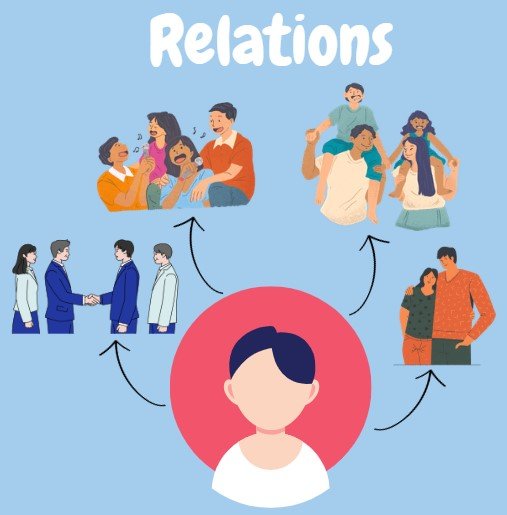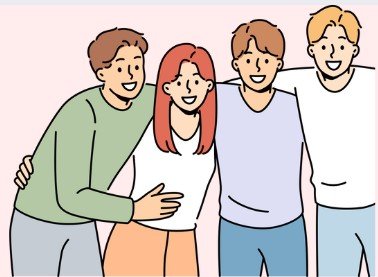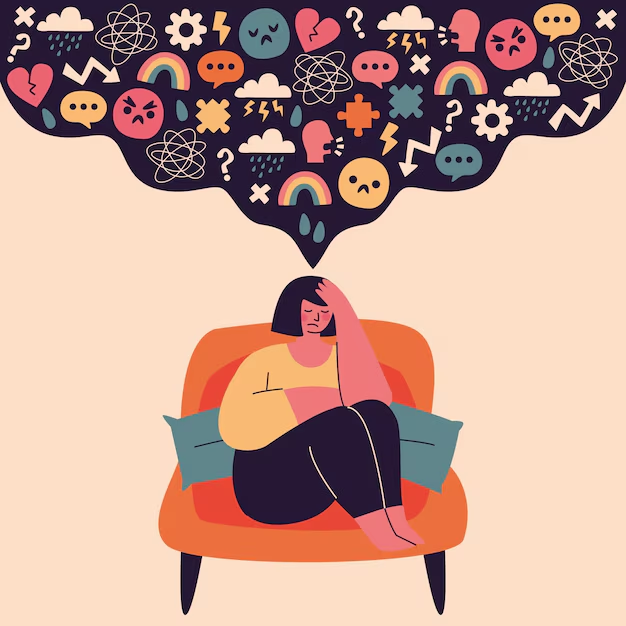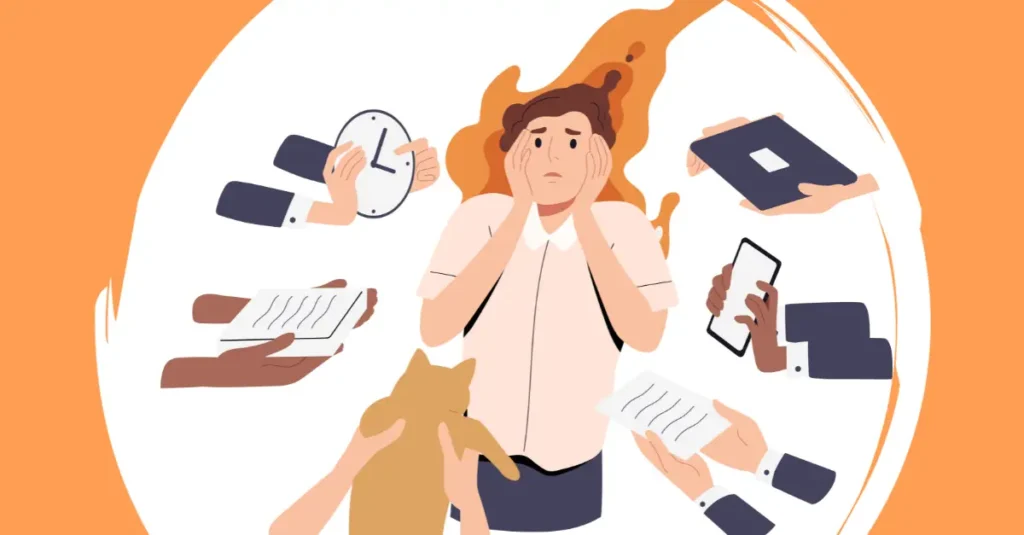From the start till the end, human beings have this intrinsic quality of being social beings. The moment one enters the world, one is wired to connect, create bonds with others, relate to them, and find meaning, belonging, and support therein. Human connection in numerous shapes and forms weave into the threads of our lives and have decisive implications on our psychological well-being, our physical health, and our happiness overall. The importance of relationships will be discussed in this article and combined with some aspects of the psychology of an individual.

Relation between Human Connection and Well-being:
Even very early relationship experiences, especially those involving primary caregivers, have a huge impact on bidirectional emotional and social development. Such developmental experiences are believed to shape one’s growing attachment styles for the future, with respect to important relations in a single’s life. Secure attachment is characterized by a certain level of trust and confidence, along with emotional availability, that serve as a bedrock for feeling secure and worthy, enabling individuals to take on the uncertainties of life with particular confidence and resilience. In contradiction, insecure styles of attachment emerge as a spontaneous outcome of rather inconsistent and/or even neglectful caregiving practices and remain eminently understood for their shove in interpersonal relationships and/or emotional-stress work environments.
After early childhood, the role of relationships is still critical for our psychological well-being. Real contact with others gives us a sense of belongingness and direction, as well as protection from any perception of loneliness and isolation. It has been repeatedly demonstrated by many studies that social support has a positive influence on marriages, where strong relations have usually been associated with a low incidence of depression, anxiety, and suicide. Bridging connections with others garners validation and acceptance in a way responsible for stepping up self-esteem and, hence, general well-being.
Psychology of Human Connections
In this way, relationships have a dual value for personal well-being: they can be redirected toward another horizon of becoming bundled with emotional support. These interactions are key for our cognitive and emotional development-our social skills are learned from the people around us-and we refine our identity. Relationships give us the mirror into which we can peer to become aware of ourselves and learn valuable lessons from others.
Moreover, relationships are viewed as the right means of buffering emotions. The sheer presence of a support person, a friend, or a family member, may easily take the overwhelming stress off us at such times. There is probably no more helpful act than sharing one’s emotions with someone trusted to provide the necessary sympathetic ear so that one can relieve their troubled minds healthily. They act as a stress buffer and bolster emotional resilience and general well-being.

Spectrum of Relationships
Some kinds of relations compose human life, adding an interesting flavor to life in different dimensions. Family ties, like that of parents, siblings, or other relatives, lend themselves to unconditional love and support. Experiences like friendships involve past experience, creating laughter, merriment, excitement in forging a new territory to fulfill their needs for belonging away from family. Romantic relationships provide attachment, love, and a degree of depth-a meeting of love and belonging needs. Even acquaintances or professional ties contribute toward pluralism, helping one grow and learn.
Substantial considerations should be given to the quality of relationships-surroundings dominated by toxicity and abuse can significantly degrade psychological well-being, introducing a toxic cocktail of anxiety and depression, together with a good measure of low self-esteem. Building worthwhile relationships takes some effort and effortful commitment on raising the bonds-honed communication, mutual respect, empathy, and a willingness to negotiate. Governance with respect to sections and nurturing toward a relationship is what should guide our steps and the direction in which we move forward toward balancing our psychological health.
Impact of Social Isolation
Conversely, what does isolation due to social estrangement and loneliness do to our emotional and physical health? Loneliness can drive a whole range of deeds from despair and panic to reasoning incompetency. Studies indicate that social isolation may be as lethal as smoking; or, again, obesity. It decreases immunity, increases susceptibility to diseases of heart and blood vessels, and shortens life span.
In this ever-increasing digital age we are living today, people may become distant from one another. Technology can play an instrumental and potent role in connecting individuals with each other. However, it must also be borne in mind that technology cannot take the place of human connectivity and real-life relationships. Watching out for each other, getting together, and nurturing respect and friendship restore contact and help ease the little pain of loneliness in life and support mental well-being.
Nurturing Healthy Connections
It requires work, a willingness, and necessarily involves constant effort to strengthen good relationships. Some of these include:
Communicate: One of the foundational elements of a strong relationship is effective communication. Allow adequate time to listen to the other person, share your own thoughts and opinions, and communicate your needs in a kind and truthful manner.
Be understanding: Despite your disagreements, make an effort to comprehend the thoughts and feelings of others. Empathy has to do with connecting and fostering understanding amongst people.
Express love: Give the individuals in your life some sort of gratitude. A simple thank-you or a heartfelt compliment could play an essential role in improving relationships.
Establish healthy limits: Relationship health depends on having healthy boundaries. As a result, be sure to express your requirements in a clear and aggressive manner and don’t be afraid to say no when it’s essential.
Invest time and effort: It takes patience to invest time and effort in relationships. Make time for the individuals you care about, participate in activities with them, and maintain these relationships.
Read about Isolation and mental health
Conclusion
Relationships are becoming essential human requirements rather than a luxury. They serve as the foundation for mental health, influencing our emotional development by providing a safety net during trying times and fostering a sense of purpose and belonging. In order to create a safe, multi-layered web of human connection that fosters both physical and mental well-being and ultimately leads to happiness, we need prioritize and nurture our relationships. We discover beauty, comfort, enjoyment, and the assurance that these form the foundation of our entire being within the complex dance known as human contact.
References
- Young S. N. (2008). The neurobiology of human social behaviour: an important but neglected topic. Journal of psychiatry & neuroscience : JPN, 33(5), 391–392.
- World Economic Forum. (2023, August 21). Scientists found the key to a healthy, happy life: relationships. World Economic Forum. https://www.weforum.org/stories/2023/08/relationships-basis-long-healthy-life/
- Jethava V, Kadish J, Kakonge L, Wiseman-Hakes C. Early Attachment and the Development of Social Communication: A Neuropsychological Approach. Front Psychiatry. 2022 Apr 8;13:838950. doi: 10.3389/fpsyt.2022.838950. Erratum in: Front Psychiatry. 2022 Jul 19;13:944889. doi: 10.3389/fpsyt.2022.944889. PMID: 35463524; PMCID: PMC9024310.
- Abrams, Z. (n.d.). The science of why friendships keep us healthy. https://www.apa.org. https://www.apa.org/monitor/2023/06/cover-story-science friendship#:~:text=A%20review%20of%2038%20studies,and%20 companionship%2C%20 significantly%20 predict%20 well%2D
Subscribe to PsychUniverse
Get the latest updates and insights.
Join 3,041 other subscribers!
Niwlikar, B. A. (2025, March 6). Tapestry of Human Connection: Importance of Relationships and Their Impact on Psychology. PsychUniverse. https://psychuniverse.com/tapestry-of-human-connection/



